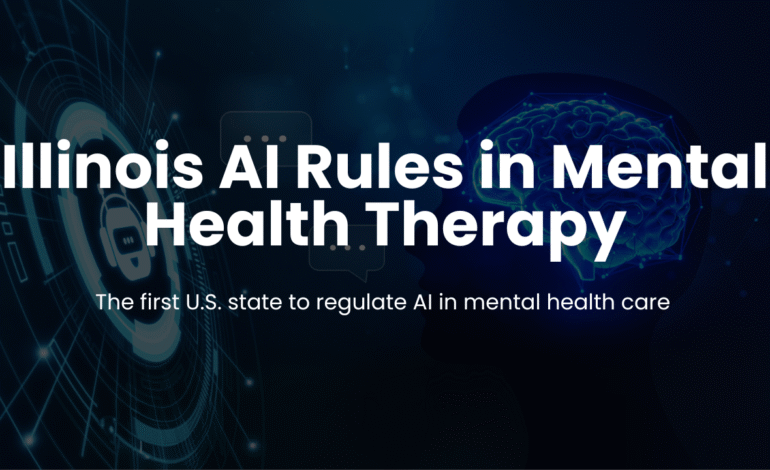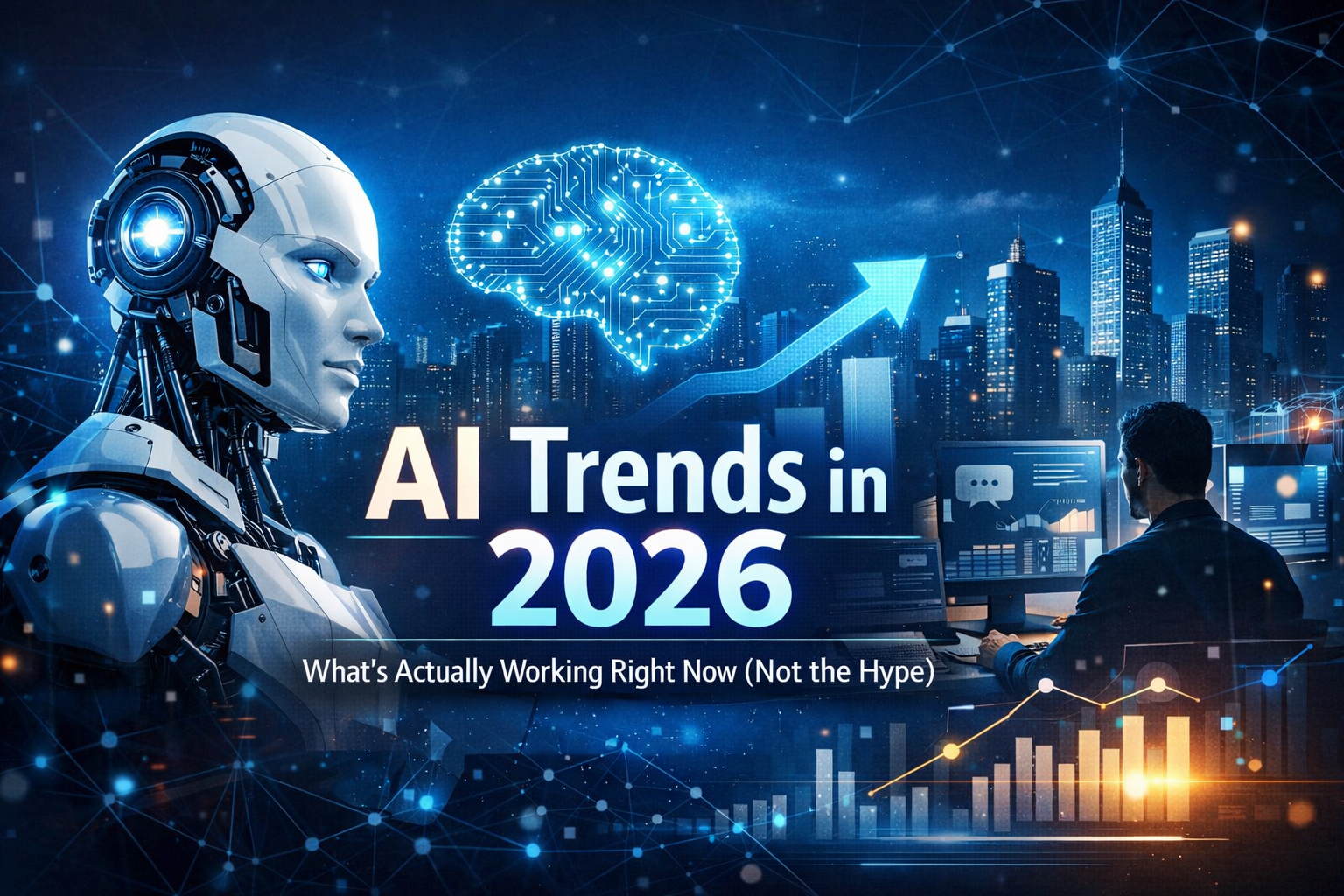Illinois Passes First AI Regulations in Mental Health Therapy — A Sign of Things to Come?

Artificial Intelligence (AI) has moved far beyond tech labs and futuristic predictions — it is now playing an active role in mental health therapy. From AI-powered chatbots offering emotional support to predictive tools analyzing patient behavior, the integration of AI in healthcare has grown rapidly.
But with innovation comes responsibility. Recognizing the risks of unregulated AI use in mental health care, Illinois has become the first state in the United States to pass legislation specifically addressing AI regulations in mental health therapy.
This landmark move has sparked an important question: Is this the beginning of a larger wave of AI regulations in healthcare across the U.S. and the world?
In this article, we will explore:
- Why Illinois took this step
- What the new AI regulations mean
- The benefits and challenges of AI in therapy
- Ethical concerns around AI in mental health
- Whether other states (and countries) will follow Illinois’s lead
The Rise of AI in Mental Health Therapy
AI is becoming a common companion in mental health support. Popular apps like Woebot, Wysa, and Replika use conversational AI to provide users with cognitive behavioral therapy (CBT) exercises, mood tracking, and coping strategies. Hospitals and clinics are experimenting with AI to:
- Analyze patient speech patterns for signs of depression or anxiety.
- Monitor biometric data like heart rate and sleep quality.
- Assist therapists by generating progress reports and treatment recommendations.
- Offer 24/7 chatbot support, helping patients during moments of crisis.
For many patients, AI has become a first line of support—accessible, affordable, and available at any hour. But this reliance also raises serious concerns about accuracy, bias, safety, and privacy, leading Illinois lawmakers to take action.
Why Illinois Decided to Regulate AI in Therapy
Illinois is often a pioneer in tech-related regulation. It was also the first state to pass the Biometric Information Privacy Act (BIPA), which regulates how companies handle biometric data such as fingerprints and facial scans.
Similarly, with AI entering therapy sessions, Illinois lawmakers saw potential risks:
- Patient Safety Risks – What if an AI chatbot fails to recognize a suicide risk?
- Data Privacy Issues – Sensitive therapy data could be misused, hacked, or sold.
- Bias in Algorithms – AI models trained on limited data may discriminate against minorities.
- Lack of Accountability – If AI makes a harmful suggestion, who is responsible — the developer, the therapist, or the state?
These risks led to Illinois passing a first-of-its-kind regulation requiring AI tools in mental health therapy to meet specific safety, transparency, and ethical standards before being deployed.
Key Highlights of the Illinois AI Regulation
While the exact details will evolve as implementation begins, here are the main points of the Illinois AI mental health law:
1. Mandatory Human Oversight
AI tools cannot fully replace human therapists. A licensed professional must monitor and guide any AI-driven therapy session.
2. Transparency Requirements
Patients must be informed when they are interacting with an AI system, not a human therapist.
3. Data Privacy Protection
Strict rules prevent therapy data from being sold to third parties or used for advertising.
4. Bias Testing
AI models used in therapy must undergo regular audits to identify and correct racial, gender, and cultural biases.
5. Accountability Framework
Clear guidelines establish who is responsible if an AI system causes harm or fails to respond appropriately in a mental health crisis.
Benefits of Regulating AI in Therapy
Supporters of the Illinois law argue that regulation can bring trust, safety, and long-term innovation.
- Improved Patient Trust – When people know AI tools are regulated, they are more likely to use them.
- Better Quality Control – Regular audits ensure therapy chatbots provide safe, reliable guidance.
- Data Security – Preventing misuse of therapy-related data protects vulnerable patients.
- Ethical Standards – Clear rules discourage companies from rushing unsafe AI apps to market.
In short, regulation could prevent AI in healthcare from becoming the “wild west” and instead build a foundation of safe innovation.
Challenges of AI Regulations in Mental Health
However, critics argue that regulation may slow down innovation. Some concerns include:
- Increased Costs for Developers – Smaller startups may struggle to comply with strict rules.
- Slower Innovation – Regulations could make it harder for new apps to reach the market quickly.
- Over-Regulation Risk – Excessive restrictions might limit the benefits AI could bring to underserved communities.
- Global Competition – If U.S. states impose heavy rules while other countries don’t, America may fall behind in AI healthcare innovation.
Ethical Concerns with AI in Therapy
Even beyond regulation, the use of AI in mental health raises deep ethical questions:
- Can a machine truly understand human emotions?
- Should AI ever be allowed to replace human therapists?
- What happens if an AI gives harmful advice?
- Do patients have the right to opt out of AI-based therapy?
Illinois’s law is a first step in addressing these concerns, but the debate is far from over.
Will Other States Follow Illinois?
Experts believe Illinois may have just set a precedent for the rest of the country. Here’s why:
- California is already debating stricter AI privacy rules.
- New York has shown interest in regulating healthcare AI.
- The EU is finalizing the AI Act, which includes healthcare provisions.
If Illinois’s law proves successful, other states are likely to follow, creating a patchwork of AI healthcare regulations across the U.S. — or possibly even leading to federal legislation.
What This Means for the Future of Mental Health Therapy
This new regulation is not just about Illinois — it’s about the future of therapy worldwide. Here’s what we can expect:
- Hybrid Therapy Models – AI will work alongside therapists, not replace them.
- Safer AI Tools – Stricter testing will lead to more reliable, bias-free therapy apps.
- More Patient Control – Patients will gain rights to know when AI is used and how their data is handled.
- Global Regulatory Wave – Other countries will likely adopt similar rules.
Conclusion
The passage of AI regulations in mental health therapy by Illinois is a landmark decision — one that could shape the future of AI in healthcare across the globe.
AI has the potential to make therapy more accessible, affordable, and personalized. But without safeguards, it also risks harming vulnerable patients. Illinois’s bold step demonstrates that responsible innovation is possible when lawmakers, therapists, and technologists work together.
As AI becomes more deeply embedded in our lives, Illinois may well be remembered as the state that sparked a new era of ethical AI in healthcare.





